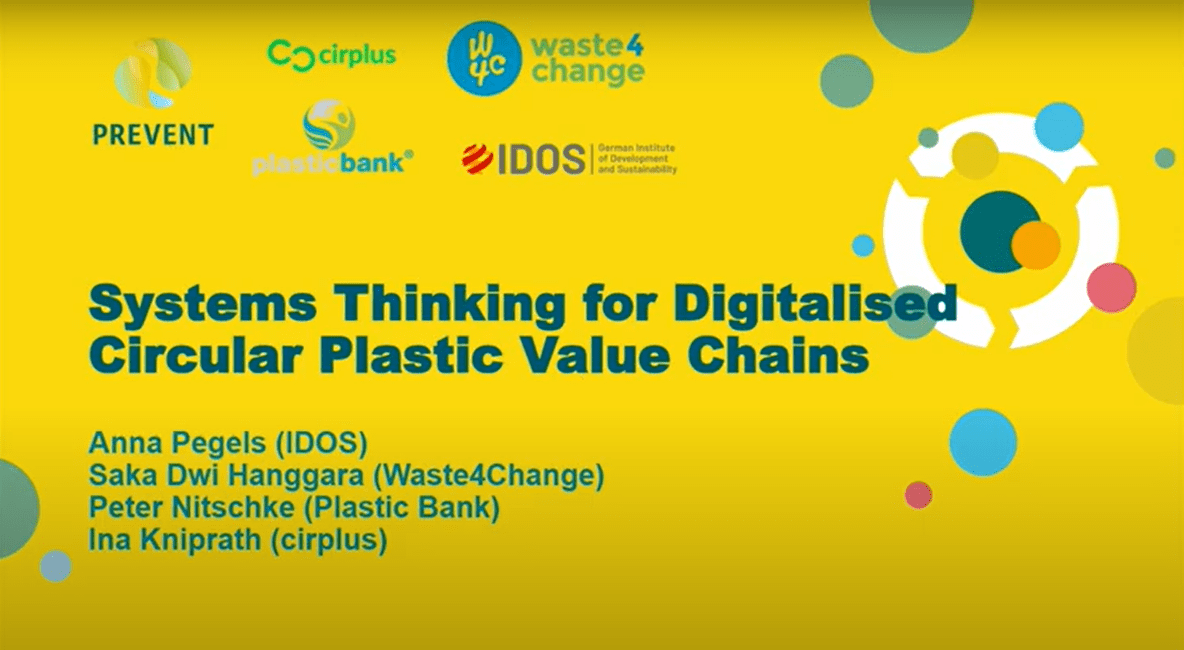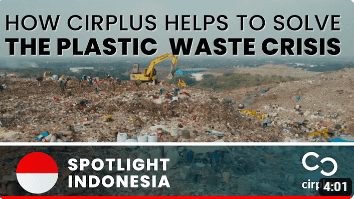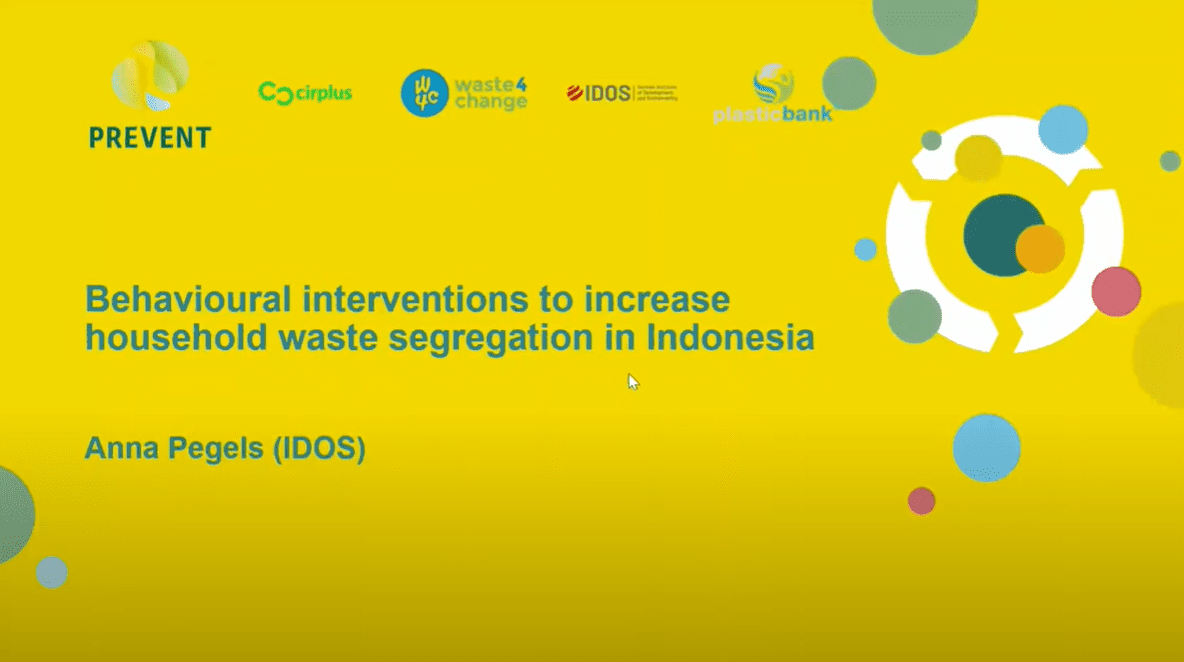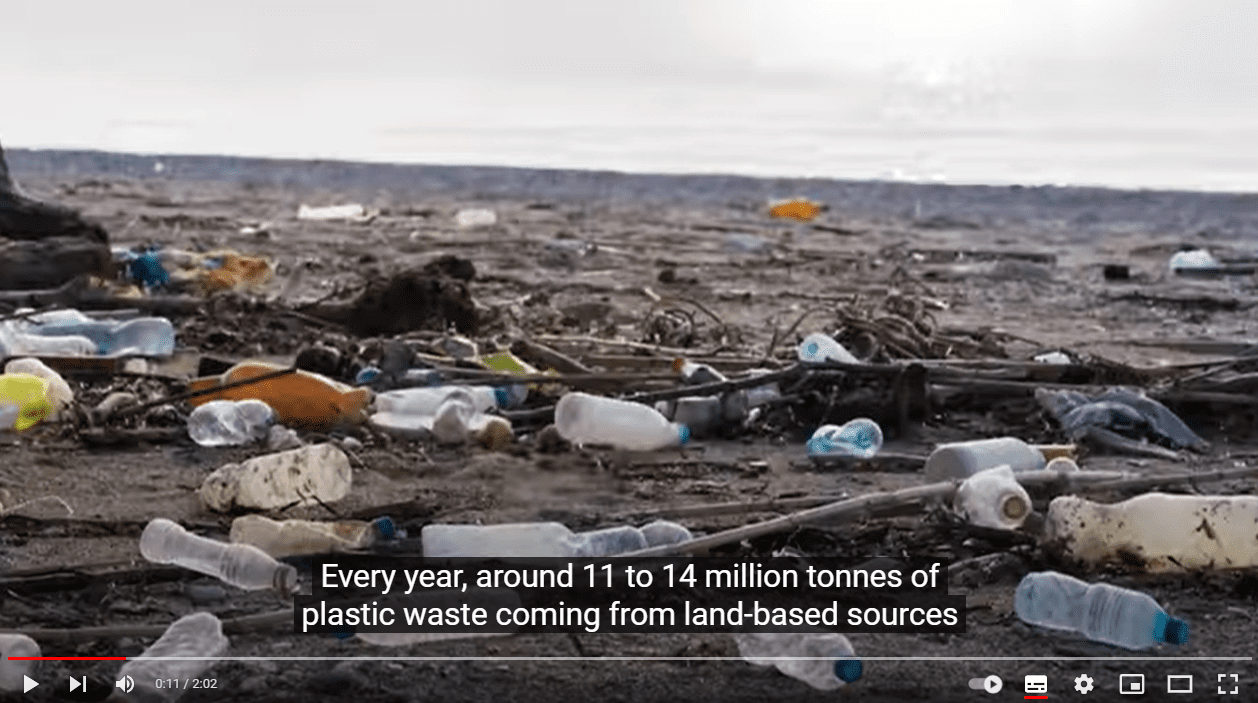Challenges
- Lack of waste separation by households
- No adequate working conditions in waste sector
- Difficult access for local recyclers to international markets for recycled materials
- Lack of transparency in local waste collection system
Our Solution
This project addressed the inefficiencies of the Indonesian waste management system caused by its complex and disconnected network of stakeholders. To tackle these challenges, the project applied a systems-thinking approach that helped to enhance the amount of plastic waste segregated, collected and recycled, and to increase the uptake of recyclates in plastic production.
Download Project FactsheetResources

Video: Systems Thinking for Digitalised Circular Plastic Value Chains
Cirplus, Plastic Bank, Waste4Change and the German Institute of Development and Sustainability (IDOS) share how they have linked sorting at source by households with the transport, processing and sale of recycled plastic. They also shed light on how the use of digital tools is driving the systemic approach for a scalable solution.
Watch on YouTube
Video: How cirplus helps to solve the plastic waste crisis - spotlight Indonesia
How can digitization solve the plastic waste crisis? This video shows how the pilot project uses a digital approach to enable a circular economy for plastics.
Watch on YouTube
Video: Behaviour Change Interventions to Increase Household Waste Segregation in Indonesia
How can behaviour change interventions be used to encourage households to segregate their waste? IDOS Senior Researcher Anna Pegels discusses key insights on effective behaviour change interventions.
Watch on YouTube
Video: Ocean 4 Life - Reducing Marine Litter
This video by the German Federal Ministry for Economic Cooperation and Development (BMZ) features the pilot project "Creating Value in Plastics through Digital Technology".
Watch on YouTube